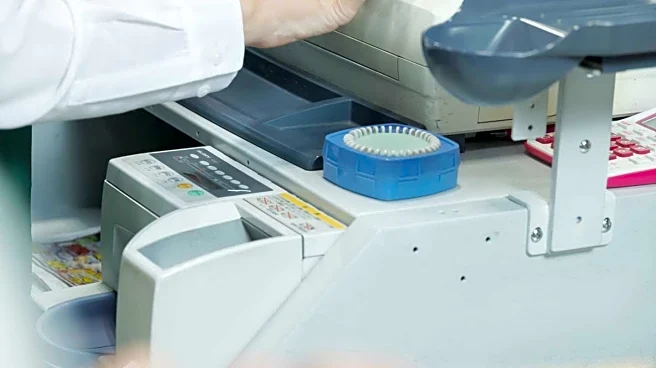What's Happening?
A recent study has identified a correlation between increased levels of autoantibodies against incretin hormones and poor prognosis in patients with diabetes. The research found that patients with higher levels of GIP-Abs and GLP-1-Abs had worse health
outcomes over a follow-up period of up to ten years. Incretin hormones are crucial for insulin secretion, and their inhibition by autoantibodies may contribute to diabetes progression. Although the study highlights the potential of these autoantibodies as prognostic markers, it acknowledges limitations in establishing causality and diagnostic capacity.
Why It's Important?
The discovery of incretin autoantibodies as potential prognostic markers could significantly impact diabetes management and treatment strategies. By identifying patients at higher risk of poor outcomes, healthcare providers can tailor interventions more effectively. This research also opens new avenues for understanding the immunological aspects of diabetes, potentially leading to novel therapeutic targets. However, further studies are needed to validate these findings and explore the mechanisms behind autoantibody production and their impact on diabetes progression.
What's Next?
Future research should focus on larger, longitudinal studies to confirm these findings and explore the underlying mechanisms of incretin autoantibody production. Investigating the relationship between these autoantibodies and diabetes-related complications could provide deeper insights into disease management. Additionally, exploring the potential interference of incretin autoantibodies with incretin-based therapies could lead to improved treatment protocols for diabetes patients.















